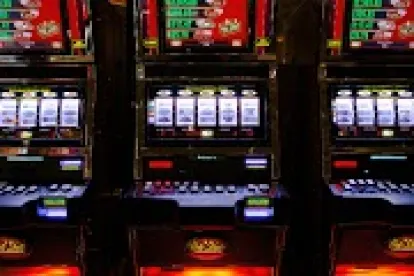U.S. residents of the states bordering Canada are familiar with advertisements for Canadian casinos, which are directed at them through television, radio, and print. It is a natural assumption that U.S. casinos are equally free to advertise in Canada, but some advertising outlets in Canada are in fact refusing to accept advertisements for U.S. casinos that depict gambling activity. This arises from an interpretation of the Criminal Code (the “Code”) that we find questionable, but which understandably risk-averse media outlets are not inclined to challenge.
The Code includes a provision that prohibits advertising in relation to a “foreign lottery,” but the text of the Code is unclear as to whether these prohibitions apply to a foreign lottery that is carried on lawfully outside of Canada, as opposed to unlawfully either in or outside Canada. Applying criminal prohibitions to lawful foreign gambling activities would contravene the principles of the statutory construction of criminal statutes, as this interpretation both (a) results in obvious absurdities, and (b) declares conduct which members of the community view as innocent or morally neutral to be criminal.
The application of the Code to activities that occur in both Canada and a foreign country requires that there be a real and substantial connection between the activities and Canada, in the sense that those activities that are connected to Canada represent an “integral” part of a “scheme” initiated in Canada. The integral parts of a “scheme” of the type under consideration that would bring them under the jurisdiction of the Canadian courts is that the foreign lottery (a) must represent a scheme devised and initiated in Canada, and (b) must allow participation in the foreign lottery in a jurisdiction in which such activity is unlawful. Neither of these integral parts of the scheme exists in the situation under consideration, and accordingly the advertising of that scheme is a matter beyond the jurisdiction of the Code.
As well, the phrase “foreign lottery” as used in the Code does not apply to every form of gambling. The word “lottery” as used in Part VII of the Code applies solely to the disposition of property by modes of chance alone. At its highest, the prohibition applicable to foreign lotteries might therefore apply to prevent the advertising of casino games that involve no element of skill, (e.g., slot machines), but it could not prohibit advertising that depicts games that involve some elements of skill (e.g., poker, blackjack, bingo, or sports betting).
The “foreign lottery” provision impacts only section 206 of the Code. In the opinion of some commentators, advertising of foreign casinos may also be prohibited by certain provisions of section 202 of the Code. These provisions on their face appear to apply the Code in an extraterritorial manner. However, it is clear that the extraterritorial language in s-s. 202(1)(f) and (g) is stating that it is immaterial whether the activity that is the focus of the gambling or betting (the “race, fight, game or sport”) takes place in Canada. These provisions do NOT state that it is immaterial whether the “gambling, book-making, pool-selling or betting” takes place in Canada. Nothing in s. 202 of the Code explicitly applies the Code to gambling that takes place outside Canada. Unfortunately, this is how some commentators have chosen to interpret these provisions, and this is having a chilling impact upon freedom of commercial expression for foreign casinos in Canada.
In our opinion, the Code must be interpreted in light of the principles espoused by the Ontario Court of Appeal in its more fulsome decision in Boardwalk Regency Corp. v. Maalouf (“Boardwalk Regency”). The court should look to whether the advertising of a foreign lottery to Canadians in circumstances where the lottery could only be played outside Canada is “blameworthy conduct which strikes at the fundamental values of the community,” or “conduct so inconsistent with the shared morality of society so as to warrant public condemnation and punishment.” If such advertising represents conduct “which members of the community view as innocent or morally neutral,” the court will not likely interpret the foreign lottery provision to criminalize that activity, because to do so would do “a disservice to the overall operation of the criminal law.” In Boardwalk Regency, the majority of the Court of Appeal held that the enforcement against a Canadian of a New Jersey gambling contract was not barred as being contrary to public policy.
The precedent in Boardwalk Regency has been followed by courts throughout Canada. Accordingly, it is settled law in Canada that Part VII of the Code does not reflect “a policy applicable on the international level” and that in accordance with Canadian community standards, participation by Canadians in licensed gambling abroad, in licensed and regulated casinos, is neither immoral nor unjust. It is also settled law that under the contemporary Canadian community standard of morality, it is expected that the law has no role to play in sheltering Canadians from engaging in licensed gaming activities abroad.
The idea that it is criminal behavior to advertise foreign casinos in Canada, and yet there exists no public policy argument that bars the collection of debts incurred in those same foreign casinos through Canadian courts, is frankly absurd. The law abhors an absurd interpretation of a statute, and accordingly advertising for foreign casinos in Canada cannot be unlawful under the Code. However, unless the federal government seeks to clarify the law, foreign casino operators may find themselves unable to advertise freely through some media outlets.
To learn more about advertising foreign casinos in Canada and Section 206 and 202 of the Code, check out the latest edition of Gaming Legal News.





 />i
/>i

